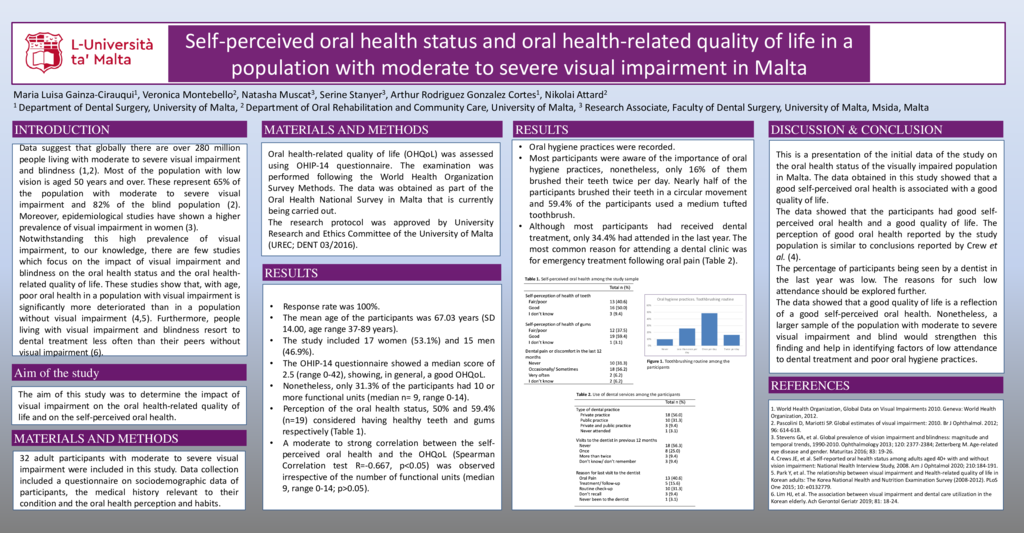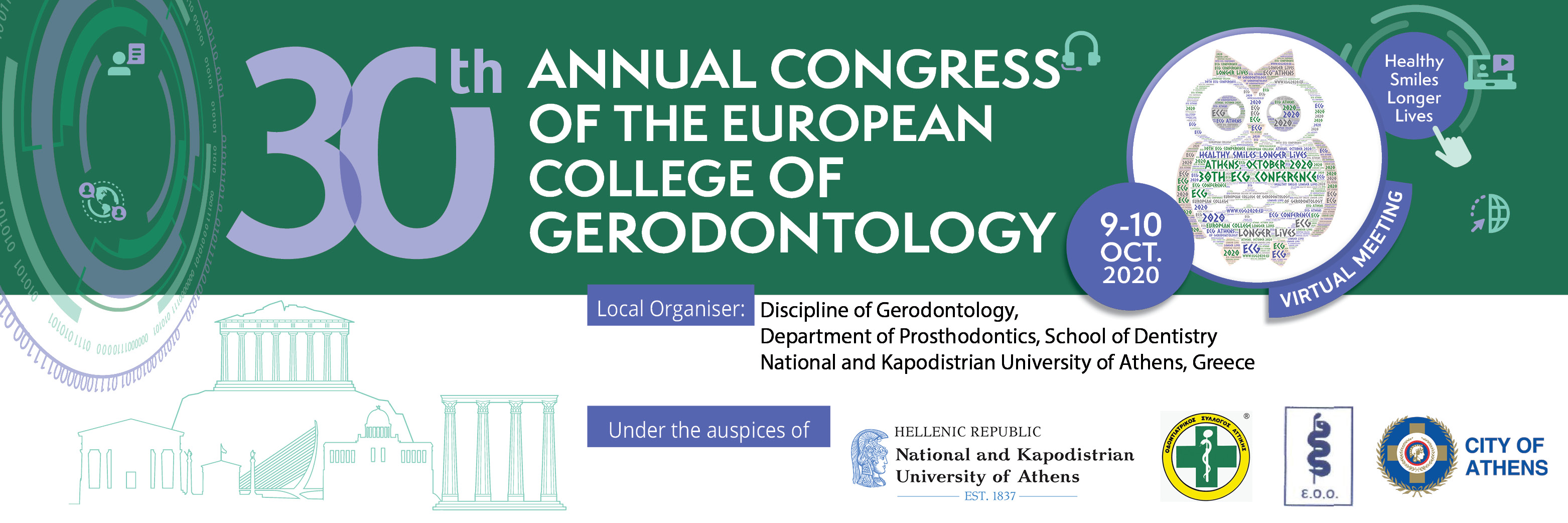Background and aim: Data suggest that globally there are over 200 million people living with moderate-to-severe visual impairment (MSVI) and blindness. Most of the population with low vision is aged 50 years and over and represent the 65% of people with MSVI and the 82% of blind people. Although there is a high prevalence of visual impairment, to our knowledge, there are few studies on the impact of visual impairment and blindness in the oral health status and the oral health-related quality of life. These studies show that, with age, poor oral health in a population with visual impairment is significantly more deteriorated than in a population without visual impairment. Furthermore, people living with visual impairment and blindness resort to dental treatment less often than their peers without visual impairment. The aim of this study is to determine the impact of visual impairment in the oral health-related quality of life and in the self-perceived oral health. Methods: A total of 32 adult participants with MSVI were included in this study. Data collection included an intraoral examination and a questionnaire on sociodemographic data of the patient, relevant medical history and oral health perception and habits. Oral health-related quality of life (OHQoL) was assessed using OHIP-14 questionnaire. Results: The mean age of the participants was 67.03 years (SD 14.00, age range 37-89 years). The study included 17 women (53.1%) and 15 men (46.9%). The OHIP-14 showed a median score of 2.5 (range 0-42) showing, in general, a good OHQoL. When asked about their perception of oral health status, 50% and 40.6% (n=13) considered having unhealthy teeth and gums respectively. We observed an association between a good self-perceived oral health and a good OHQoL (Kruskal Wallis, p=0.007) irrespective of the number of functional units (median 9, range 0-14; p>0.05). Conclusion: We present the initial data of the study in the oral health status of the visually impaired population in Malta. The data obtained in this study suggest that a good self-perceived oral health is associated with a good quality of life.
- 42 views



